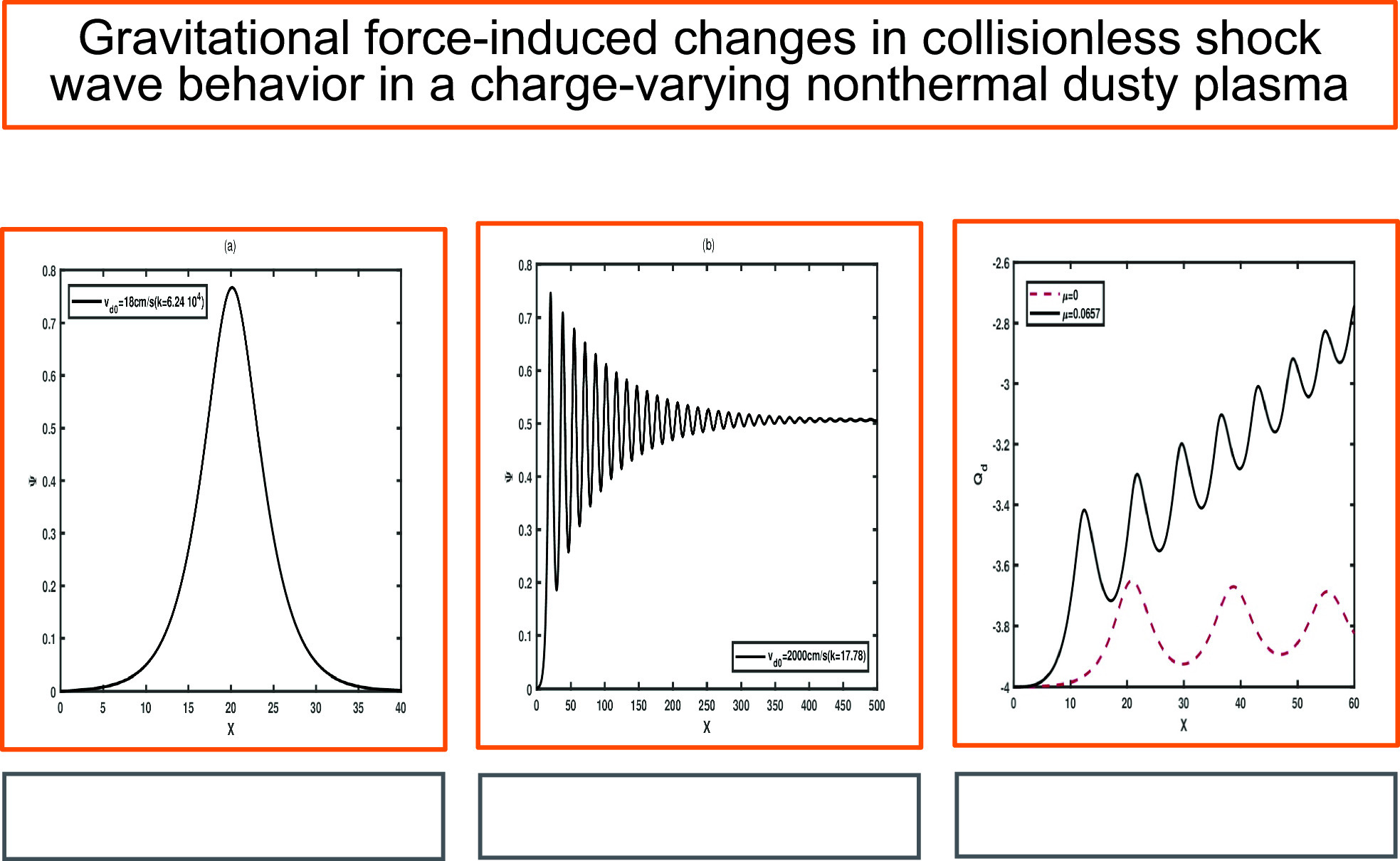https://doi.org/10.1140/epjd/s10053-024-00913-8
Regular Article - Plasma Physics
Gravitational force-induced changes in collisionless shock wave behavior in a charge-varying nonthermal dusty plasma
1
Laboratory of Electrical Engineering and Automatics, University of Medea, 26000, Medea, Algeria
2
Laboratoire de Valorisation des Substances Naturelles (LVSN), Djilali Bounaama University, Route de Theniet El Had, 44225, Khemis Miliana, Algeria
3
Theoretical Physics Laboratory, Faculty of Physics, USTHB, B.P. 32 Bab-Ezzoura, 16079, Algiers, Algeria
Received:
24
May
2024
Accepted:
5
September
2024
Published online:
30
September
2024
The effects of gravitational force on the behavior of collisionless shock waves in a nonthermal dusty plasma with fluctuating charge have been examined. The distribution function describing a cold beam of dust grains under the influence of gravitational effects has been reanalyzed, resulting in the derivation of a new density expression. Numerical integration of the Poisson equation, coupled with the dust grain charge equation, reveals that the electrostatic potential associated with DA shock waves forms an asymmetric, oscillatory structure when gravitational effects are considered. Specifically, we have found that due to gravitational effects, the electrostatic potential inherent to the DA shock waves undergoes a jump and increases linearly and the amplitude of each oscillation decreases as the nonthermality of the electrons becomes more important. Furthermore, for medium-sized grains, the interplay between electrostatic potential and gravitational forces results in a shift of the multilayer structure toward higher potential values, along with an increased number of oscillations. This effect becomes even more pronounced for larger grains. The results of our investigation may contribute to a deeper understanding of shock structures in inhomogeneous media obtained in a controlled laboratory environment and may also have practical applications in interpreting similar phenomena in astrophysical contexts.
The original online version of this article was revised: In this article, the author’s name was wrongly spelt as Ziane Kchidi. It should have been Ziane Kechidi.
A correction to this article is available online at https://doi.org/10.1140/epjd/s10053-024-00929-0.
Copyright comment corrected publication 2024
Copyright comment Springer Nature or its licensor (e.g. a society or other partner) holds exclusive rights to this article under a publishing agreement with the author(s) or other rightsholder(s); author self-archiving of the accepted manuscript version of this article is solely governed by the terms of such publishing agreement and applicable law.
© The Author(s), under exclusive licence to EDP Sciences, SIF and Springer-Verlag GmbH Germany, part of Springer Nature 2024. corrected publication 2024. Springer Nature or its licensor (e.g. a society or other partner) holds exclusive rights to this article under a publishing agreement with the author(s) or other rightsholder(s); author self-archiving of the accepted manuscript version of this article is solely governed by the terms of such publishing agreement and applicable law.





